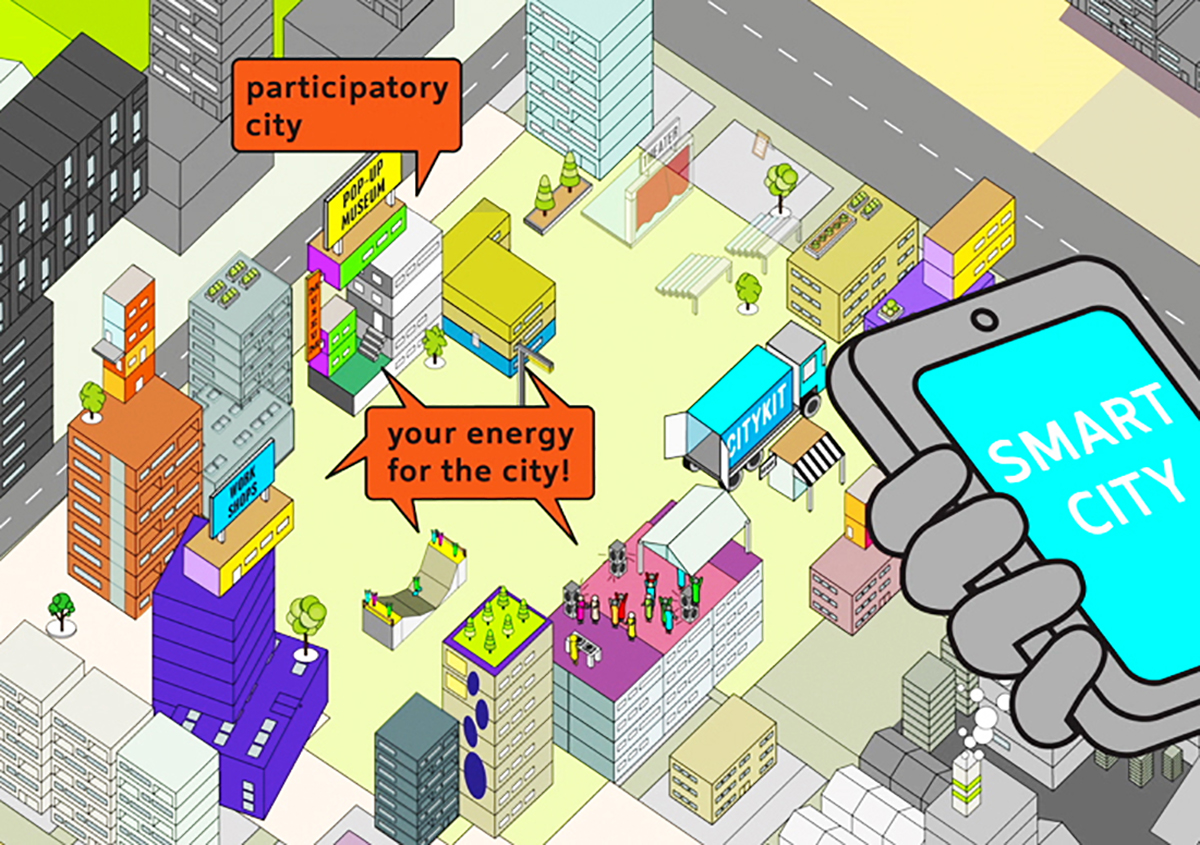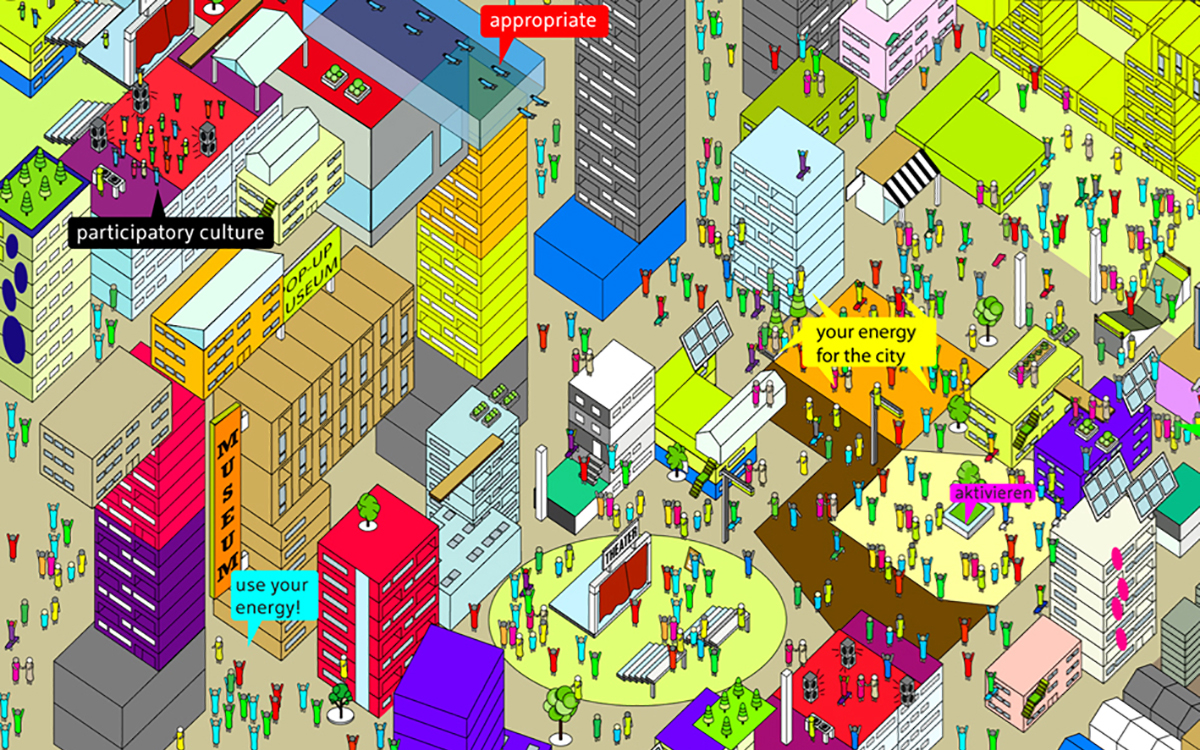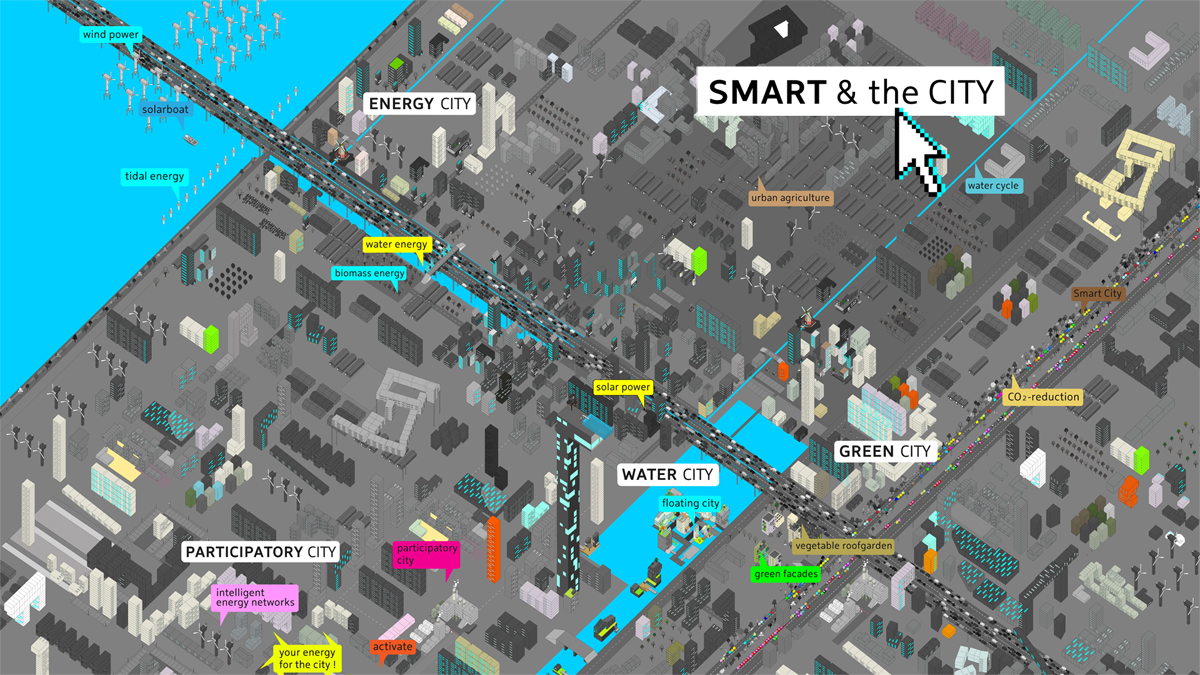With ubiquitous digitalization of cities, different social and urban approaches provide alternative inputs, opening up room for the possibility for shaping urban-tech.
At its core, it is a question of what factors contribute to the quality of the urban environment, and how do these factors interact, and how to think inclusively.
It is urgent to factor in for the socio-urban dimensions involved in urban technology concepts.
Newsletter February 2020 @ Hybrid Space Lab, Berlin, 15 February 2020
Smart
Citizens
Visions, Concepts and Narratives for the Networked City @ Humboldt Institute for Internet and Society, Berlin, 20 February 2020
What are the social models and city concepts shaping urban technology?
What is the social and urban history of city technologies and infrastructures?
What is not addressed by these urban-tech solutions and who is left behind?
Would human-centered approaches to urban technology promote practices for the self-determination and empowerment of Smart Citizens?
Visions, Concepts and Narratives for the Networked City
related PROJECTS
Today, media networks are influencing and interacting with real places. Information and Communication Technology (ICT) is radically changing the way we live, interact and perceive our world.
Politics, economics, warfare, culture are increasingly taking place in the spaces of information-communication, media networks.
Publication Hybrids @ Interior Wor(l)ds, Umberto Allemandi & C., Torino, Italy, September 2010
Politics, economics, warfare, culture are increasingly taking place in the spaces of information-communication, media networks.


